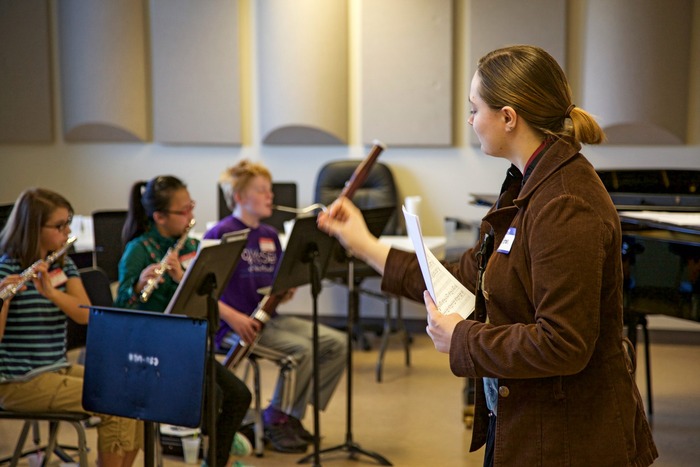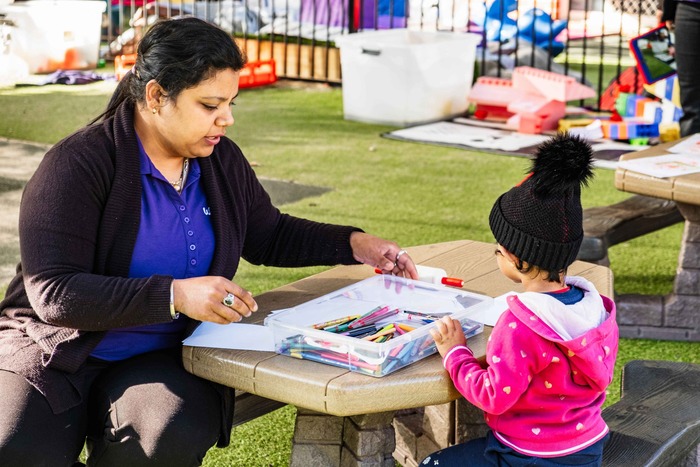Art and music education have long been recognized as crucial components of a well-rounded education. These disciplines not only foster creativity and self-expression but also contribute to the overall development of children in profound ways.
One of the primary benefits of art and music education is the enhancement of cognitive skills. Studies have shown that children who engage in artistic and musical activities demonstrate improved problem-solving abilities, enhanced memory retention, and better focus and concentration.
The process of creating art or learning to play an instrument requires a unique combination of visual, auditory, and motor skills, which can positively impact a child’s academic performance across various subjects.
Moreover, art and music education play a vital role in the social and emotional development of children. Participating in group activities, such as band or choir, teaches children the importance of teamwork, communication, and collaboration.
These skills are essential for navigating the complexities of social interactions and building healthy relationships. For students who seek structured and expert assistance in their academic pursuits, a thesis writing service can provide valuable support, ensuring they achieve their educational goals.
How Art and Music Education Enhance Creativity
Creativity is a fundamental aspect of the human experience, and art and music education are instrumental in nurturing and cultivating this vital skill. By exposing children to a wide range of artistic and musical mediums, educators can encourage the exploration of new ideas, the development of unique perspectives, and the ability to think outside the box.
When children are encouraged to experiment with different materials, techniques, and musical instruments, they also learn to embrace the process of trial and error, developing a growth mindset that is essential for creative problem-solving.
Also, art and music education often involve the integration of diverse disciplines, such as history, literature, and science. By making these interdisciplinary connections, children are able to see the world through a more holistic lens, fostering a deeper understanding of the complexities and nuances that shape our experiences.
This multifaceted approach to learning can spark new ideas, inspire unconventional solutions, and cultivate a lifelong love of learning.
The Role of Art and Music Education in Personal Development
Beyond their cognitive and creative benefits, art and music education play a crucial role in children’s personal development. These disciplines offer a unique opportunity for self-discovery, self-expression, and the cultivation of a strong sense of identity.
Through the process of creating art or learning to play an instrument, children develop a deeper understanding of their own emotions, passions, and strengths. The act of self-expression can serve as a powerful tool for children to explore and communicate their inner worlds, fostering a greater sense of self-awareness and self-confidence.
Moreover, art and music education can provide a valuable outlet for children to navigate the challenges and stresses of growing up. By engaging in these creative pursuits, children can find a healthy and constructive way to process their experiences, manage their emotions, and develop healthy coping mechanisms.
The Power of Art and Music Therapy in Healing and Self-Expression
Art and music therapy have emerged as powerful tools for healing and self-expression, particularly for individuals facing physical, emotional, or mental health challenges. Art therapy, for instance, can help individuals process traumatic experiences, manage anxiety and depression, and develop a greater understanding of their thoughts and feelings.
By engaging in the creative process, individuals are able to express themselves in a nonverbal and often more accessible way, allowing for deep introspection and personal growth.
Similarly, music therapy has been shown to have a profound impact on individuals’ well-being. The rhythmic and melodic elements of music can have a calming effect on the mind and body, reducing stress and promoting relaxation. Furthermore, the act of creating music, either individually or in a group setting, can foster a sense of accomplishment, belonging, and emotional release.
Art and Music Education Programs and Initiatives
In recognition of the myriad benefits of art and music education, a growing number of schools, community organizations, and government initiatives have been dedicated to expanding access and opportunities for children to engage in these creative pursuits.
One such initiative is the integration of art and music education into the core curriculum of schools, ensuring that these disciplines are not treated as mere extracurricular activities but rather as essential components of a well-rounded education.
By incorporating art and music into the daily learning experience, educators can foster the development of the whole child, nurturing their cognitive, social, emotional, and creative capacities.
Additionally, many communities have established after-school programs, summer camps, and community centers that offer a wide range of art and music classes, workshops, and performances.
These initiatives not only provide children with the opportunity to explore their creative interests but also serve as a hub for community engagement, fostering a sense of belonging and cultural enrichment.


